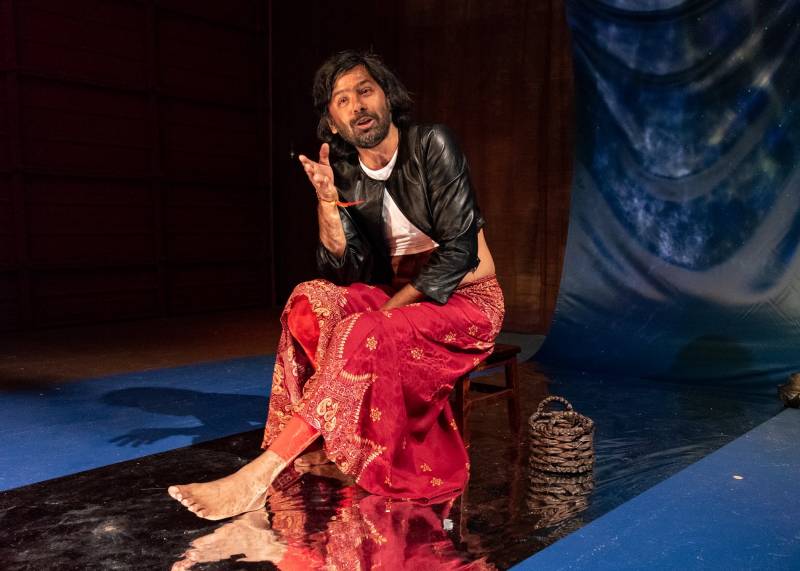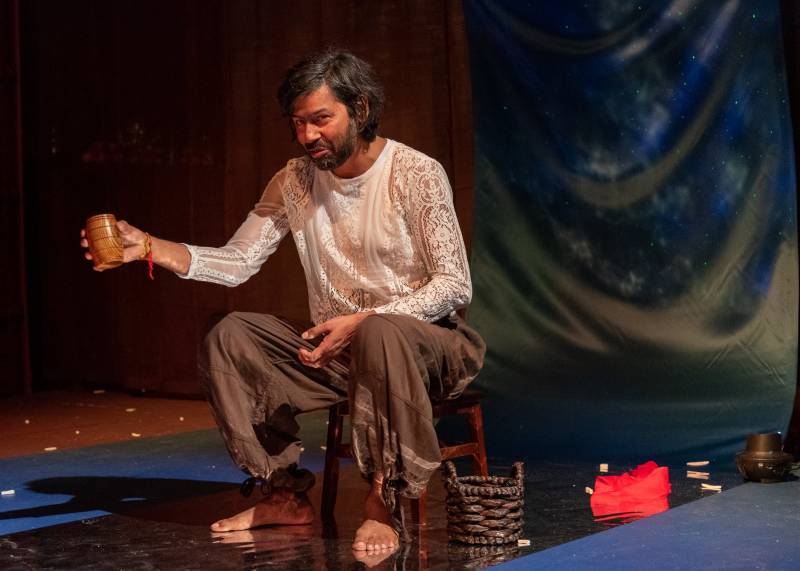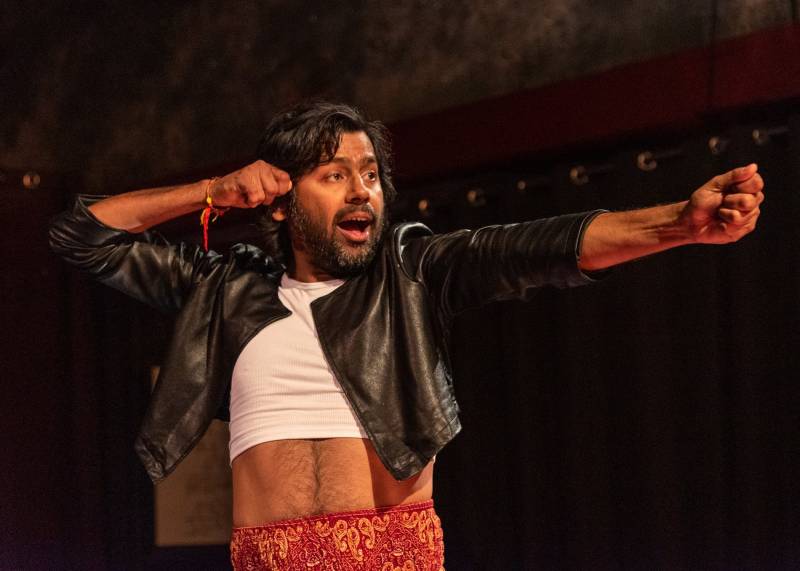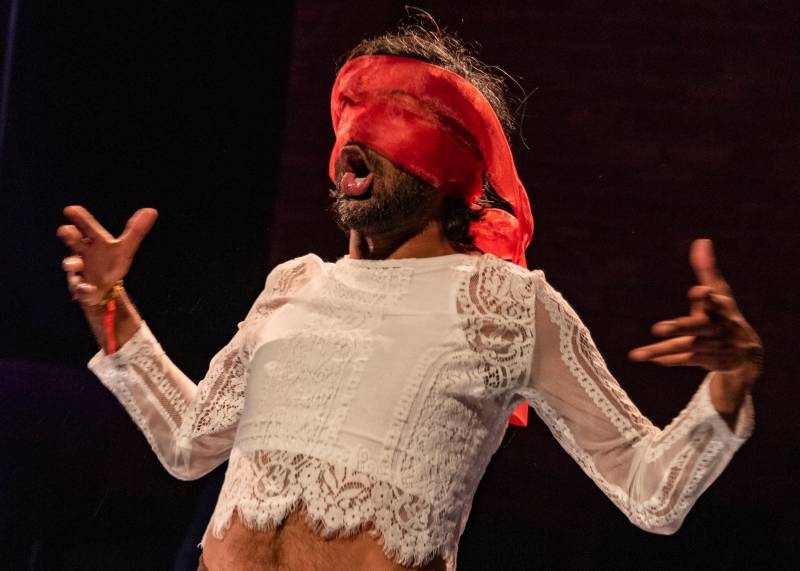Chances are you’ve heard of The Mahābhārata, one of the world’s great epics, penned in Sanskrit between 400 BCE and 400 CE. But have you read all 100,000 slokas (200,000 verses), or attempted to watch the entire thing performed over the course of the 12 days it would take to recite it—with no breaks?
At first, J Jha, star of Ubuntu Theater Project’s production of The Mahābhārata, threatens to do just that: lock the doors and start from the very beginning until the very end. A compromise arrives by offering a whirlwind, crash-course summarization of the world’s longest poem—12 days’ worth of material in under 12 minutes—using a timer to ensure the latter. A confusing blur of names and elaborate titles ensues, before Jha collapses onto the stage, momentarily spent. Clearly this strategy won’t work either.
Jha’s solution? To let the roll of the dice decide what stories to tell. Of course, the audience is given quickly to understand that dice are not ruled by random chance, but by destiny. Meaning that whatever story emerges is the one that was meant to be told.

Last seen with Ubuntu in April’s Down Here Below, and more recently in Cal Shakes’ The Good Person of Szechwan, Jha is both warrior-solid and willow-supple with the multitudes populating Geetha Reddy’s inventive script. Whether portraying the matriarch Kunti from her impetuous youth to her elder years; all five of her legitimate sons; the heroic Pandavas; or their wife-in-common, the revered beauty Draupadi, Jha’s energy never fades. Skipping, slinking, bouncing, stomping, and dancing across the makeshift playing space of the loading dock of Oakland’s FLAX Art Supply store, Jha inhabits not so much the individual characters, but each individual plot twist.
Jha rustles skirts and stretches fingers as the “virgin” mother Kunti letting her firstborn son, Karna—the illegitimate son of the sun god Surya (who comes off in this irreverent retelling as a bit of a louche f**ckboi)—float away down the river in his golden baby armor. Jha swaggers delightedly when playing Chitrandaga, a “muscle-bound” warrior princess with her sights set on Arjuna. As Draupadi, Jha is wrapped in an elegantly embroidered sari and sits at a “window,” ready to judge the competition for her hand. Fathers and mothers, brothers and sisters, dozens of cousins, and the occasional incognito god crowd onstage. An entire 18-day war is fought. With an arch of the eyebrow, a knowing smile, a noncommittal head tilt, Jha captures the essence of each shifting account, despite the dizzying complexities of the source material.

Designed by Karla Hargrave, the minimal set cuts a bold swath directly down the center of the space: an arch of blue suggesting the sky, a pathway of reflective material, a low stool and a cup for dice. Pools of light designed by Stephanie Anne Johnson signal moments of transformation or reckoning. The simple, effective costuming provided by Regina Evans offers suggestions of sumptuous finery with a few versatile pieces that allow Jha freedom of movement as well as freedom from gender specificity. And Uriah Findlay’s supportive sound design, full of electronic mixes of traditional Indian music, subtly sets the mood. Director (and Ubuntu’s Artistic Director) Michael Socrates Moran includes a few theatrical tricks in the staging, but the show succeeds best when it relies on the skillful narration and physical stamina of its sole performer.




